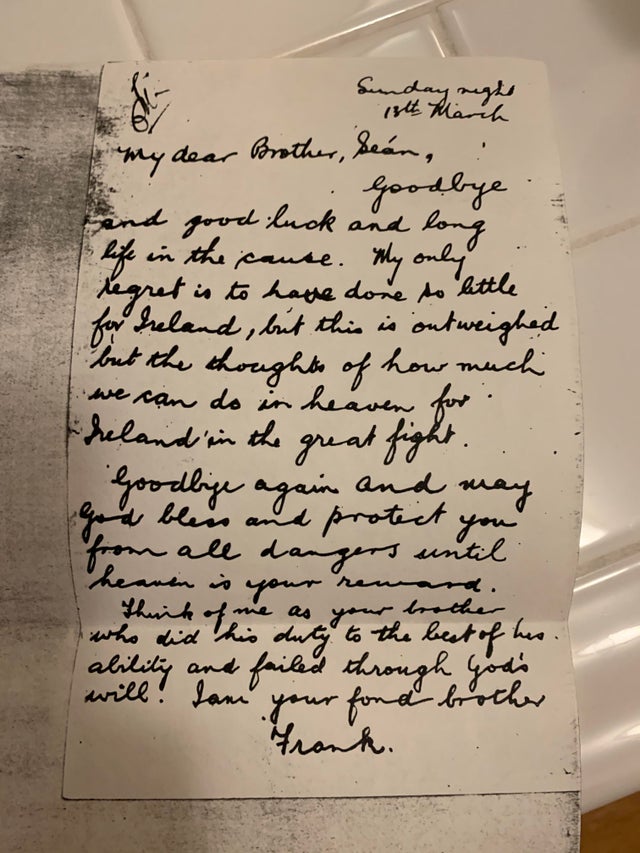AN IRISHMAN has shared his great granduncle’s final correspondence with his great grandfather prior to his execution in around the time of the Irish War of Independence.
Little is known about the two men mentioned in the letter, other than the fact that the sender is named Frank while the recipient is names Seán.
What is clear, however, is that Frank fought in the Irish war of Independence of 1919, was captured and was subsequently facing execution.
In a final act, he wrote to his beloved brother, saying goodbye and good luck for the future.
He remained true to the cause to the very end though, sending a rallying cry to his sibling to carry on the fight for Ireland.
It's unclear how the letter found its way to the recipient.
The letter was uploaded to Reddit by u/kidswwithoutideas and makes for emotional reading.
“My dear Brother Seán,” the letter begins.
“Goodbye and good luck and long life in the cause.
“My only regret is to have done so little for Ireland, but this is outweighed by the thoughts of how much we can do in heaven for Ireland in the great fight.
“Goodbye again and may God bless and protect you from all dangers until heaven is your reward.
“Think of me as your brother who did his duty to the best of his ability and failed through God's will.
"Love your fond brother Frank”
 Image: u/kidswwithoutideas
Image: u/kidswwithoutideas
Some 2,500 people died during the conflict between the British state, its forces in Ireland and Irish republican guerrillas in the Irish Volunteers or Irish Republican Army.
Though the war is said to have run from 1919 to 1921, acts of violence and aggression occurred both before and after this time period.
Alongside the military campaign there was the political confrontation between Sinn Fein, who after winning the General Election of 1918, declared an Irish Republic, and the British administration over in Dublin Castle.

